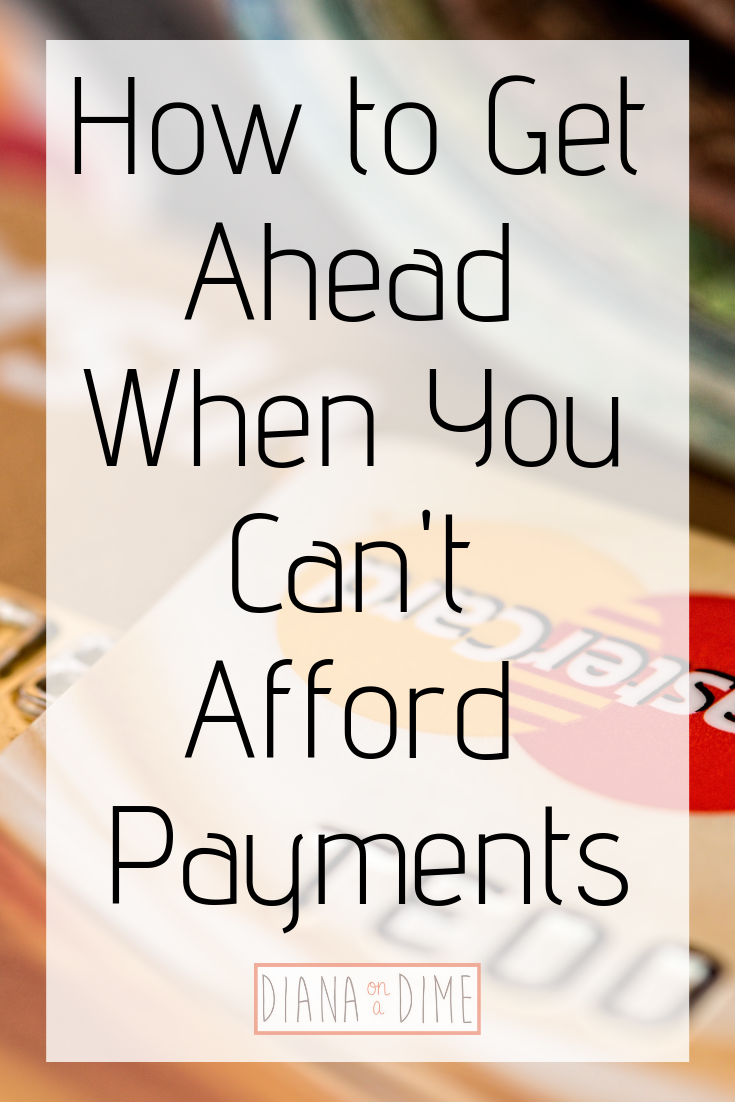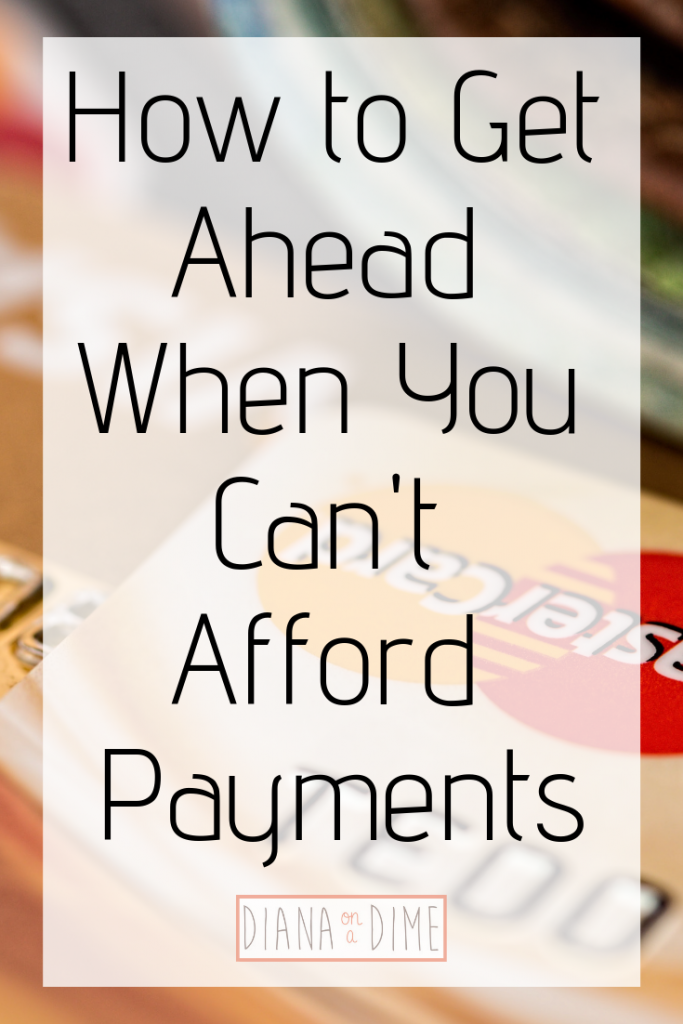How to Get Ahead When You Can’t Afford Payments
This post may contain affiliate links. Check out my Disclosure Policy for more information.
Recently in the news it was shared that 7 million Americans are 3 months behind on their car payments. Not surprisingly, the age group that was most represented were twenty somethings. They shared that it is most likely because this age group are struggling to afford their car payments with their student loans.
I’ve been there. My payments were $2,000/month when I first graduated and I was only making about $3,000/month as a teacher with a master’s degree. And the only reason I was making this much was because I was in New Jersey, where cost of living is high. I couldn’t afford housing here, so I moved back home with my parents.
I know this isn’t an option for everyone, but without this, there would have been no way of affording to live back then with that large of a payment. Without moving back home, I never would have made a significant dent in my student loans and lowered my payments to $1,100/month, which it is now after paying off $115k.
As a twenty something, it is hard to manage money. No one teaches us this, unless you are lucky and came from a family who made sure you knew how. It’s expected for us to just figure it out. I am so happy that I’m starting to see high schools require classes in it, but that’s only just starting now.
The only reason I learned to manage my money was because I was absolutely scared out of my mind when I found out my minimum student loan payment. I had no choice but to do my research and figure out how to manage a budget, so I could make my minimum payments.
These are the steps I followed when I knew I couldn’t afford my minimum payments.
1. Create a honest budget with all of your payments and actual spending.
We all have the budget we want to see. You know, no eating out, no coffees, no shopping and no frivolous spending. The reality is that isn’t what we do. Look back to your last month of spending and create a budget using it. If you need help creating a budget, I have a template you can use.
You may be thinking this is counter productive, but I promise this is probably the most important part of this process. Write down everything, down to the penny for all of your spending. Categorize it into different variable spending categories, groceries, gas, coffee, eating out, etc. Your categories are going to depend on what you spend money on.
Have your income at the top and then all of your expenses and total each category up and then your total expenses.
2. Evaluate your spending habits.
Where did your money go last month? Really look at your spending and evaluate if your choices brought value to your life. You’ll probably see that small expenses snowballed throughout the month to be large expenses at the end. We don’t realize how much these small joy expenses really make a huge difference when they accumulate throughout the month.
When I did this when I was still in grad school, panicking about my minimum payments, I remember seeing that I spent $150 at Chipotle in one month. That’s an absurd amount of Chipotle, but the reality was that it was across the street from the education building on campus. It was super convenient when I was working full time and going to school full time to just grab dinner on my way to class.
This was an easy fix for me, I started meal prepping my dinner, like I did with my lunch. I allowed myself one Chipotle night a month when I had my once a month double class after working 8 hours.
3. Make big changes when you can’t afford your payments.
Chipotle isn’t going to make or break your budget. The reality for me once I graduated was that I literally wouldn’t be able to afford to live in New Jersey. The cost of housing is just absolutely ridiculous and I couldn’t find anything for less than $1,000/month. That’s when I reached out to my parents to hear what they thought about me moving back home.
This obviously isn’t something everyone can do, but what I do encourage you to do is to get creative about your living situation when you can’t afford your payments. There are so many ways to lower your monthly living expense. If you live in a city, can you use Airbnb to rent a room or multiple rooms to bring in extra income? Can you get a roommate?
Get creative about the areas that you have to keep in your budget to cut down on these expenses.
4. Make changes to cut down on your expenses.
Now that you have seen where your money is actually going, start looking to see where you can cut expenses. Keep the things that bring you happiness and value, but get rid of things that don’t. For me, I value spending time with the people I love, so I do keep money in my budget to spend eating out. But, I won’t grab take out just for myself out of convenience anymore.
This has cut down drastically on this expense for me and I almost always remember the memories I make when I spent that money. For me, that’s money well spent.
5. Increase your income.
I love working side jobs, they have completely changed my life, especially since I haven’t received a raise from teaching since 2016. I strongly encourage everyone to have more than one source of income, just in case you lose one, you have others to fall back on. If you can find a side job that you love doing, it really is a great way to make some extra money to help you afford your payments.
It can be hard when you are in this situation to think about your options, but just remember, there are always options for you. Sit down, create a plan, and stick to it to get yourself in a better position to afford your payments easily. How have you fixed your financial situation?





